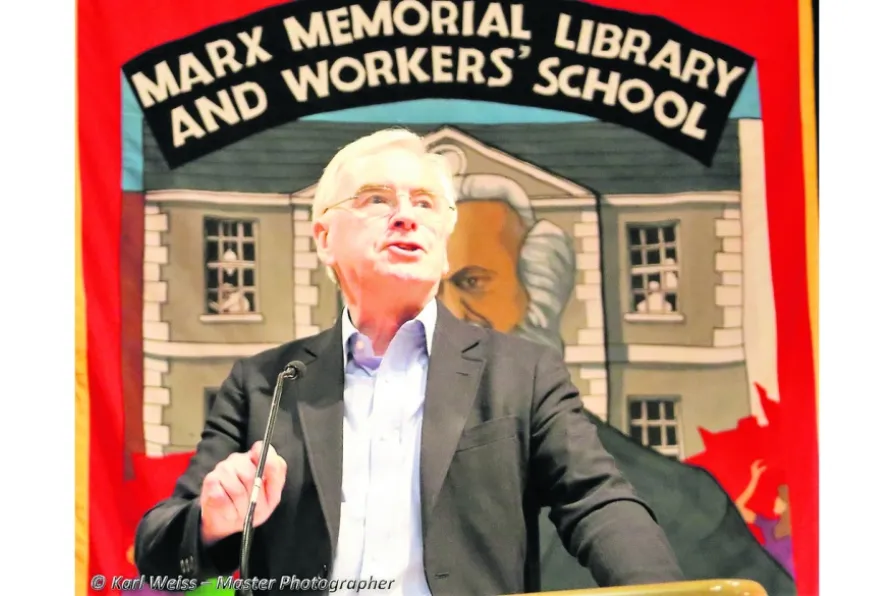
 Shadow chancellor John McDonnell addresses the Marx 200 conference at the weekend
[Karl Weiss]
Shadow chancellor John McDonnell addresses the Marx 200 conference at the weekend
[Karl Weiss]
ONE of Labour’s greatest achievements since Jeremy Corbyn was elected leader in 2015 has been to open up new space for political debate.
Years of Establishment consensus hollowed out our democracy.
When Margaret Thatcher said her greatest achievement was Tony Blair, she was not merely referring to a shift in the “centre ground” away from social democracy and towards unrestricted neoliberal capitalism.

The selection, analysis and interpretation of historical ‘facts’ always takes place within a paradigm, a model of how the world works. That’s why history is always a battleground, declares the Marx Memorial Library

Starmer sabotaged Labour with his second referendum campaign, mobilising a liberal backlash that sincerely felt progressive ideals were at stake — but the EU was then and is now an entity Britain should have nothing to do with, explains NICK WRIGHT

Deep disillusionment with the Westminster cross-party consensus means rupture with the status quo is on the cards – bringing not only opportunities but also dangers, says NICK WRIGHT

With turnout plummeting and faith in Parliament collapsing, BERT SCHOUWENBURG explains how radical local government reform — including devolved taxation and removal of party politics from town halls — could restore power to communities currently ignored by profit-obsessed MPs









